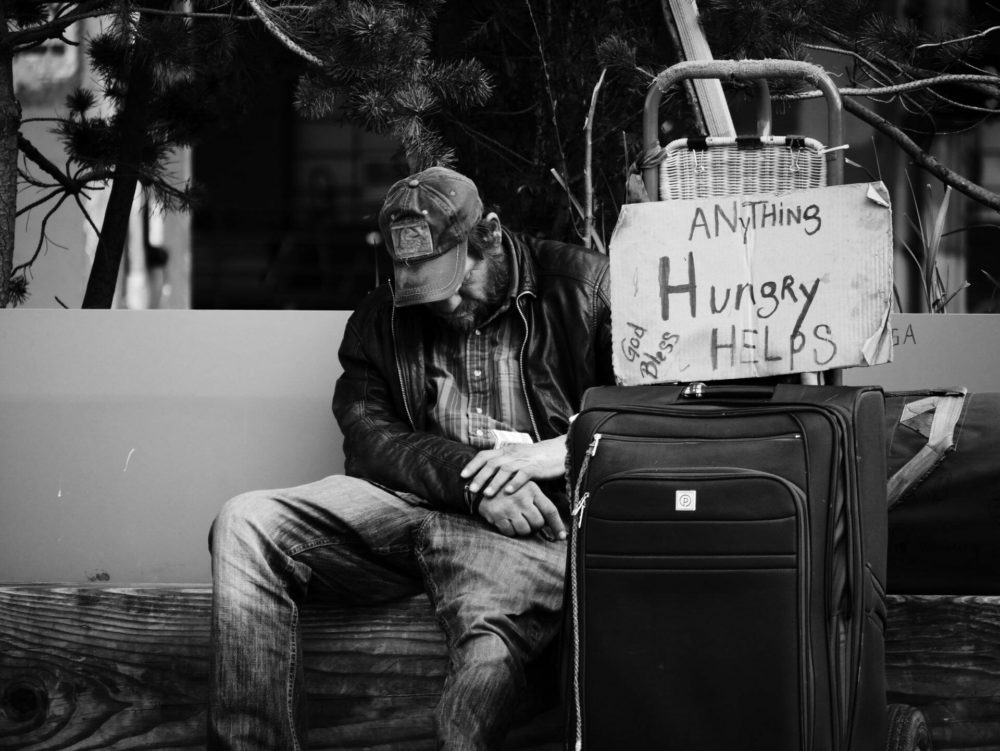Among its many impacts, the ongoing pandemic is worsening food insecurity and food waste in the US and abroad.
Roughly 11% of US households reported experiencing food insecurity during at least some part of 2018, including 4.3% that reported very low food security, according to USDA data. The agency defines food insecurity as having limited access to adequate food for an active, healthy life due to a lack of finances or other resources. Food insecurity is often tied to living in a food desert, where access to fresh foods is extremely limited or prohibitively expensive.
Despite the abundance of food that’s produced and offered in the US, food insecurity worsened between 2017 and 2018.
Now, millions of consumers have lost their jobs due to the pandemic. One report suggests that 30 million Americans have now applied for unemployment benefits and that another 3.8 million could join them in the queue this month. Schools have also closed, leaving some children without access to government-supported school meal programs. And food banks report large increases in visitors from demographics they don’t usually see.
At the same time, disruption in the supply chain has wreaked havoc on food supply, leaving entire sections of supermarkets completely bare. Prior to the pandemic, food waste-focused organization ReFED estimated that the baseline amount of US food waste totaled 62.5 million tons annually with 52.4 million tons tossed into landfills or incinerators and 10.1 million tons lost at the farm level.
To ease the impact, ReFED has started a $1 million grant fund to provide a portfolio of organizations with funding to try and prevent over 10 million pounds of food or 8.3 million meals from being wasted. Each successful applicant will receive on average $50,000 in non-recoverable grants.
Applications for funding will be reviewed on a rolling basis and evaluated against a robust set of criteria, according to ReFED. This includes:
- Applying on behalf of a social enterprise, benefit corporation, for-profit company, public-private partnership, 501(c)(3) non-profit organization, or fiscally-sponsored project headquartered and operating in the U.S.
- Supporting the mission of the ReFED’s COVID-19 Food Waste Solution Fund and will prevent and rescue at least 250 tons or 417,000 meals of otherwise wasted food over the next 90 days.
- Demonstrated annual revenue or operating budget of approximately $500,000 or more.
Interested organizations can apply here.
The funds will be distributed over the next 90 days with the first round already deployed to the following food waste and food security-focused organizations:
- Forager: Enables a digital community of farmers, producers, grocers, restaurants, and consumers. Over the next 90 days, they will expand the reach of the tech platform to 10 states.
- SeaShare: Sources and processes high quality, donated seafood and has distributed over 3.5 million servings to Feeding America food banks over the past two months.
- Boston Area Gleaners: Rescues surplus farm crops for people in need. They are scaling cold-storage and repacking facilities and expanding the geographic reach of produce sourcing in light of COVID-19.
- Food Rescue US: Operates a technology-based last-mile meal prep operation. In response to COVID-19, they launched Restaurant Meal Programs and Community Kitchen, a collaboration with World Central Kitchen.
Due to a donation from Betsy & Jesse Fink, all administrative costs related to the effort are covered and 100% of every dollar donated will be deployed to an approved food waste or food insecurity organization.
Other contributors to the fund include Kroger’s Zero Hunger | Zero Waste Foundation, Ajana Foundation, Atticus Trust, Caerus Foundation, Fink Family Foundation, The JBP Foundation, and private investors Jackie & Orion Hindawi, founder of cybersecurity fund Tanium, and June & Paul Rosetti, chairman of Robertson Aviation.
ReFED is still accepting donations for the fund and ultimately hopes to raise $10 million to address what it sees as the acute need for food waste relief during the pandemic.





